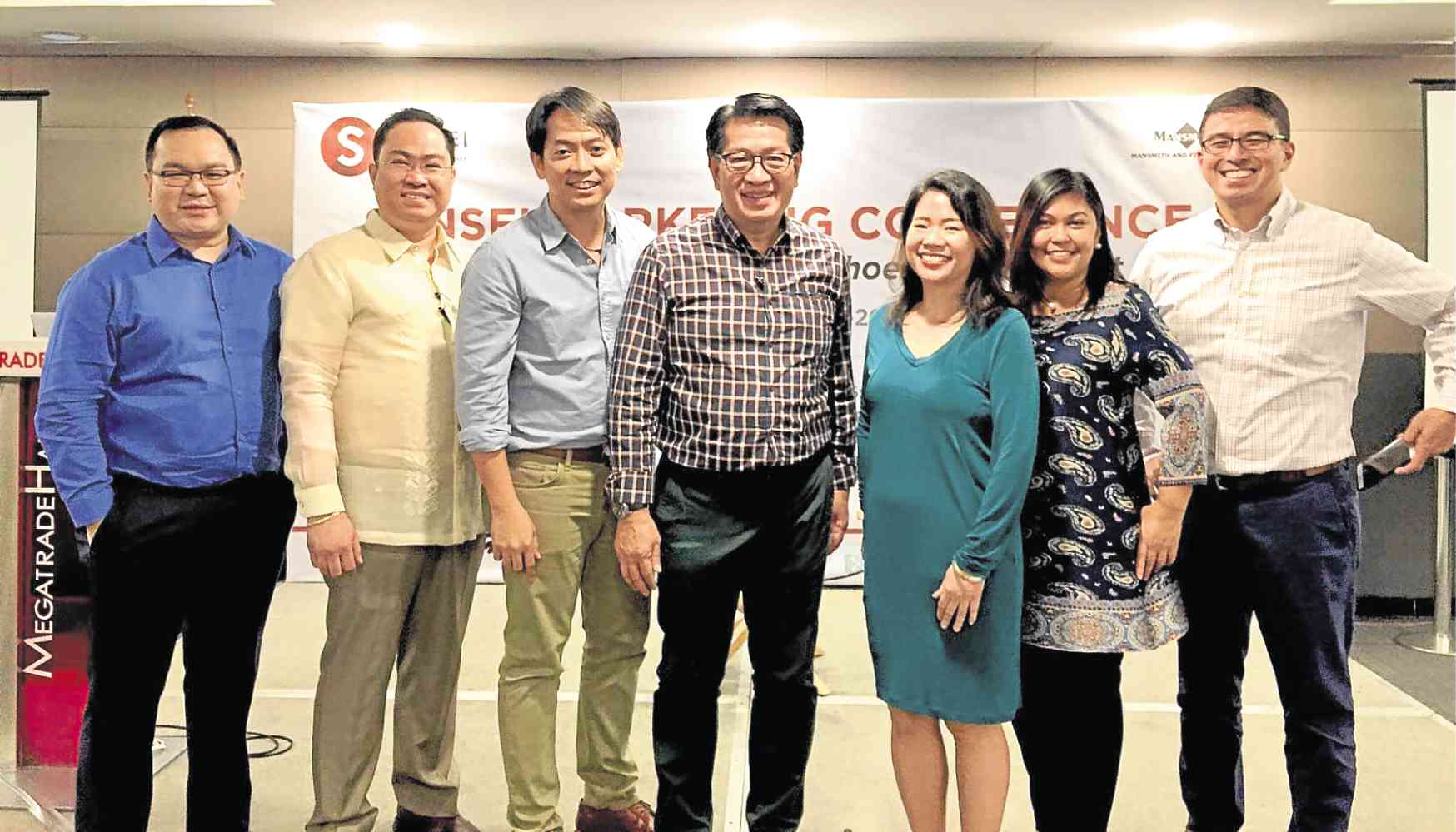6 ‘sensei’ share marketing lessons

To get the most value out of a limited budget is every company’s desire, but not everyone knows how to do exactly that.
Fortunately, in the recently concluded Sensei Marketing Conference organized by the Sensei Business Academy, some of the country’s leading marketing experts shared their insights on various ways to get the most bang for the buck.
Ian Santos, country manager of Mundipharma, maker of Betadine, focused on channel marketing.
- Omnichannel can be improved by being seamless (unifying customer experience across different platforms), having a single champion and common experience metrics (the online team is not separate from the store operator’s team), proper sales attribution in an integrated manner, and real-time inventory and management processes (one that follows the customer across all channels).
- Use service output demand or what customers value to help shape channel design and channel marketing.
- Look into cost of customer acquisition and campaign ROI (return on investment) per channel.
Milona Barraca, former trade marketing manager of Abbott Nutrition and Reckitt Benckiser, delved on shopper marketing.
- Shopper marketing is about changing shopper behavior ethically to say yes by nudging them.
- The science of shopper decision is about understanding human decision, including knowing their biases to be efficient.
- Music that can increase sales is music that has brand fit. Research has also shown that slower, low tempo background music makes customers take their time to buy more, classical music can help lift sales of more expensive items because it makes customers feel richer, even sad music surprisingly can make people feel better because of nostalgic memories.
Ronnie Traballo, managing director of Bomanite Southeast Asia Pte. Ltd., engaged attendees on marketing-oriented selling.
- Sell trust before selling your products and services. One way is to volunteer answering inquiries in public industry discussion groups that can create more opportunities for potential business.
- Invest in automation to be efficient and save money later.
- Networking is an investment. It would do you well to meet the right people when you don’t need the relationship yet and best when you can serve others, such as in an industry association.
Imelda Lim, former director for operations of Alorica, Emerson and Sykes, now with Capgemini, talked about marketing operations.
- Brand promise is fulfilled by operations people, which must be consistent with the brand identity.
- Make customers not only enjoy the functional benefit of your product or service, but more importantly, make customers feel good. Beyond ensuring that you have happy employees serving customers, empower employees to resolve issues soonest.
- Recruitment, screening and onboarding are critical. Amazon probed for consistency with values and culture fit, Ritz-Carlton make employees own and resolve a problem but another person double-checks satisfaction 20 minutes after resolution, while in Taco Bell, executives are monitoring hands-on the first 30 days of new hires.
Ramon Barredo, senior marketing and sales executive of Unilab, covered experiential marketing.
- Experiences initiated well by brands can offer brands their distinctiveness if not differentiation.
- Experience leads to memories. Good memories can lead to higher brand recall.
- Three planning guides to experiential marketing involves plotting the consumer journey, identifying the moments that matter, then researching the pain points in the moments that matter.
Alvin Liao Alburo, managing partner of Alburo Alburo and Associates Law Offices, walked us through marketing law.
- Telling customers they need to claim a special prize that they have won, then requiring a purchase after, ganged up by other company representatives is illegal, a type of false, deceptive and misleading advertising affirmed by the Supreme Court.
- Law can give a firm competitive advantage (like tax break) or create barrier to entry (like trademark and copyright).
- Even a government ban on advertising can provide an advantage to existing players. For instance, a ban on cigarette advertising creates a status quo effect to incumbent players since newcomers cannot do any advertising and promotions. —CONTRIBUTED